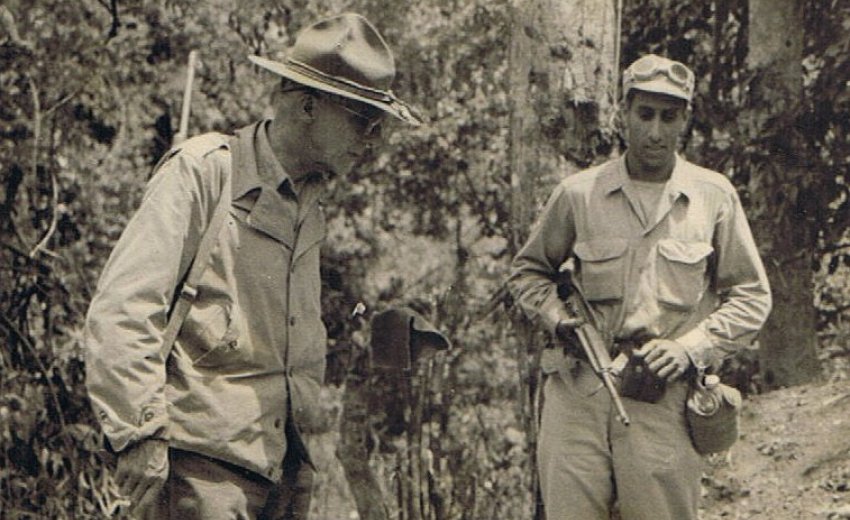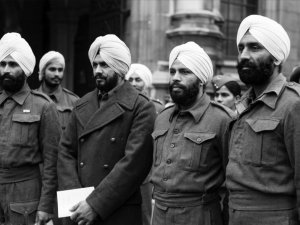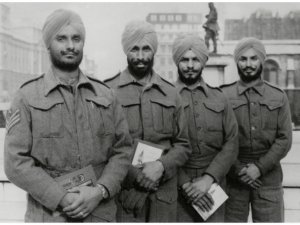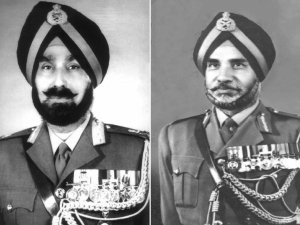Co-written by Harprabhjeet Singh Bedi
"I have seen aeroplanes fighting high up above, and machinegun bullets going like anything... had been chased and machine gunned by the Japanese planes"
From February to August 1939, during the Second Sino-Japanese war, a total of more than 3,000 volunteers left Malaya and Singapore for China to offer their services as truck drivers and mechanics. They drove army trucks to ferry military supplies from Lashio in Burma to Kunming in Yunnan Province as China's seaports had been blockaded by the Japanese navy. The dangerous route, called Burma Road, was 1,150 kilometres long, and was often strafed by Japanese fighter planes. More than half of the volunteers died in the course of duty, many remained in Yunnan after the war, and few came back. These drivers and mechanics are known as the Nanyang Volunteers.
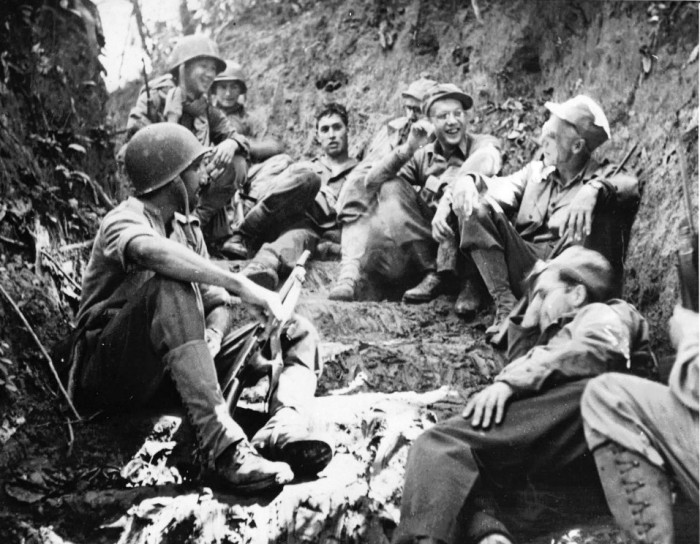
A young Taiping Sikh, Dara Singh, who was one of the first groups of Taiping Volunteers for the China war-front, described of his thrilling experiences and adventure. He had been chased and machine gunned by the Japanese planes, had seen the execution of Chinese spy with the broad sword and travelled over China's great highway Kunming to Lashio.
"Dara Singh was born at Taiping in 1914. His father, Mota Singh (Bengal Lancer, 1st Duke of York's own), went to Mesopotamia on active service in 1915. He received his education at the King Edward VII School, Taiping , Perak and he passed the Senior Cambridge examination. In 1934, Dara joined the Malayan police force and became a drill instructor at the depot.
He resigned from the police to take a motor mechanic's course. Dara had acquired the skills of a competent transport officer; a sound education, formidable linguistic ability, management and technical qualifications. He was not long in waiting to put them to use. The call came for volunteers to go to China. Dara and other King Edward VII old boys joined the transport division of Chiang Kai Chek's army on the Burma Road.
Dara Singh has gone to China to serve for foreign nation in her hour of need , gives a sure indication of courage and bravery.
When the storm clouds of 1940 gathered, Dara had acquired the skills of a competent transport officer; a sound education, formidable linguistic ability, management and technical qualifications.
Dara Singh was one of the first to join up to serve China as a motor Truck driver. Many Mechanics and truck drivers were among others who left Malaya to work for Chungking Governments. Kartar Singh, the elder brother of Dara Singh who was the Indian Volunteer with the first batch to China, among the instructors in driving.
They were predominantly heavy vehicle drivers, mechanics and skilled tradesmen. They were sent over in batches to Kunming in Yunnan, principally to help man convoys transporting vital material from the Allies over the Sino- Burma frontier - the famous but hazardous wartime Burma Road to China's wartime capital, Chungking. Malayan contingent of mechanics and drivers unit had gained a high reputation for their good work. Their war services along the Burma Road a vital backdoor military supply line to China were well remembered epics at one time.
In China, life has been on great change for Dara Singh. China has placed a big and responsible task in his hands and it is his duty to see everything is done in the correct way. He was stationed in Paoshan and put in charge of more than 1000 Lorries. He has to assure that all these Lorries reach their destination.
On one occasion he was reported dead and had to phone the editor of the local newspaper to explain that it was not true.
On one occasion he met with a nasty accident, he was driving a supply bus when suddenly the front axle snapped and the bus was thrown off. He escaped without a scratch and every one said that he was very lucky, for it was nasty drop. In all his years of driving he had never seen a front axle snap into two.
He had some hard times proving he was as good as his Chinese comrades. However he succeeded and rose from Sergeant to Colonel in two years and then was personally awarded by Chiang Kai Shek in 1943.
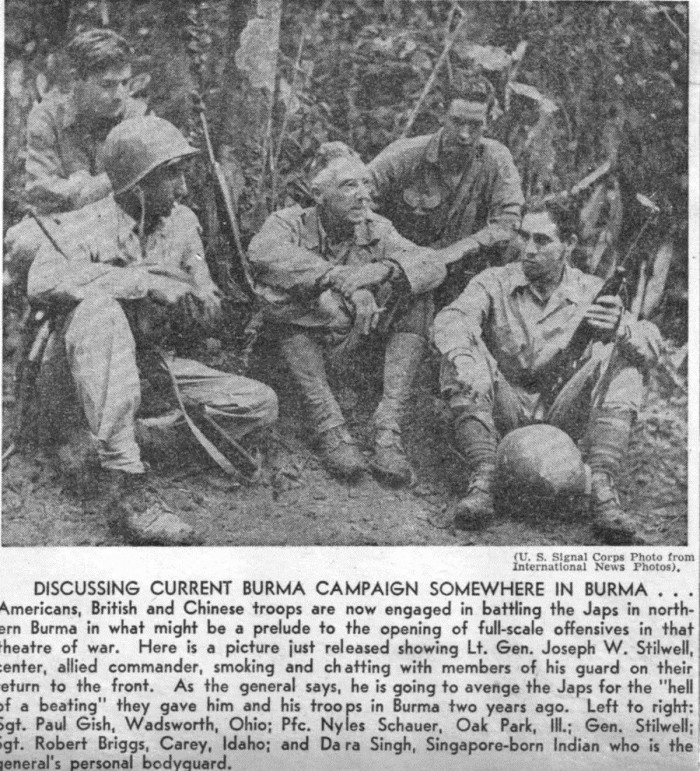
Later he served with the American forces in Burma and worked closely with General Joseph W Stillwell who was commanding Chinese troops against the Japanese. Here he was the General's aide, bodyguard and interpreter, making good use of the language skills he had nurtured in Malaya, China and thereafter. Dara's openness must have suited the general because the two got on well. It was friendship that lasted until Stillwell's death.
Working with General Stillwell then provided the opportunity to work with Lord Louis Mountbatten, the World War Two Allied Chief of Combined Operations, South East Asia. On 7th March 1944, while travelling in a jeep in northern Burma, Louis Mountbatten was accidentally struck by fragments of a bamboo plant that rendered him temporarily blind due to internal haemorrhage. It was during this period that Dara Singh rescued Lord Louis from a jeep crash. Prompt first aid from Dara Singh and then a fast trip to a field hospital with him saved Mountbatten's sight. Mountbatten recovered from his temporary blindness at Ledo, India. That was the last time they met until Lord Louis paid an official visit to Malaysia in 1967 and Dara Singh was in the official reception. At the reception Lord Louis announced that Dara Singh had saved his eyesight by his swift reaction that day in Burma.
After the war, he returned to Taiping, Perak, where he became a game warden until he retired, living a quiet life with his wife and two children.
This is a very important history that all should never forget. Many of the heroes are still forgotten and they deserve their place in history!
